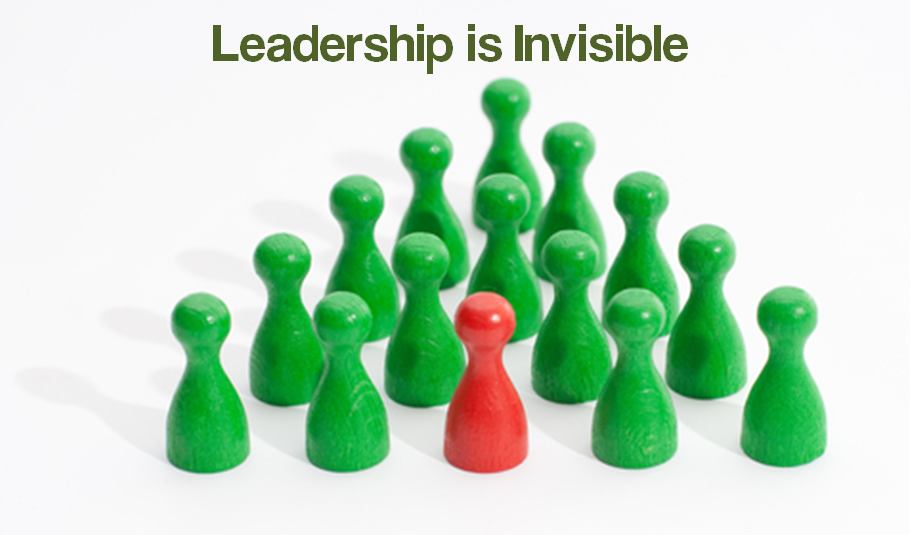Maybe you have had an opportunity to observe leaders who are quick to accept credit and seem more interested in receiving attention and merit. Another style of leadership is one for whom the top interest is in creating a better future, offering new ideas and building the capabilities of the team, resulting in an organization that continues to thrive even when the leader is not present anymore. These are two styles of leadership, except only one of them is truly a leader.
[box]This post was originally published on Sara Canaday’s leadership blog. Sara is a leadership consultant that helps professionals achieve their best and the author of You According to Them, a fantastic book on leadership self-awareness. [/box]
I was still working at Microsoft a couple years back when I heard about the developer division winning the most prestigious marketing award presented by CEO Steve Ballmer. The award was being presented to a team I had once led for a project that I launched together with my friend Federico.
[quote font_size=”14″ bgcolor=”#dce7f4″ arrow=”yes”]“Don’t worry when you are not recognized, but strive to be worthy of recognition.”— Abraham Lincoln[/quote]
It was an uneasy feeling because, while I felt really good that my ideas were being recognized as transformational for the company, I also felt bad for not getting credit and recognition for those ideas. That’s when Federico shared one of his great insights: “Leadership is invisible,” he said. Since then, I have been thinking more about this concept of invisible leadership.
[quote font_size=”14″ bgcolor=”#dce7f4″ arrow=”yes”]“Avoid getting credit for your ideas. It’s easier to accomplish things if you don’t worry about getting the credit. Eventually people will learn about you and respect you even more.” – Benjamin Franklin[/quote]
True leadership is about what you leave behind, about the change you have made in people and in organizations. The best kind of leadership is invisible leadership, because it eliminates any trace of ego or self-centered interest that the leader may have and focuses on truly leading.
Many people say they want to be leaders, although what they really want is power. Power is getting people to do things because of position, money or fear. Leadership is inspiring people, sharing a vision of a better future, changing mindsets, and ultimately getting people to do things differently.
[quote font_size=”14″ bgcolor=”#dce7f4″ arrow=”yes”]“A leader is most effective when people barely know he exists. When his work is done, his aim fulfilled, his troops will feel they did it themselves.”— Lao Tzu[/quote]
A key difference is in the intentions of a leader. You can seek a leadership position because you are looking for power and recognition or lead because you want to guide people to a better place and to make a difference in people’s lives.
One of the best definitions of leadership comes from Marcus Buckingham, who wrote a book I recommend to every people manager and leader (read my summary here). He said leaders visualize a better future so clearly, and are so passionate about it, they can’t help but do everything they can to make that future a reality. Their vision and passion make people follow them independently of their position in the org.
In my story above I did not get any credit, but I did get a lot of pride because my vision became the standard for launching products at one of the best companies in the world. Leaders are driven by pride not by ego.
[quote font_size=”14″ bgcolor=”#dce7f4″ arrow=”yes”]“Credit is infinitely divisible. Give it away every chance you get, and there’s always plenty left for you.” – Don Berwick,[/quote]
To lead people means you are being followed. Following does not mean following the leader personally wherever he goes (although that happens too) but following the leader’s ideas. A good leader builds organizations that continue to go on after the leader leaves. The leader can pull back and the team keeps going, they are following his or her ideas. It’s like raising a child: you don’t merely want your kids to be obedient. You want them to be successful in life on their own, following the principles and values you gave them.
Some time after leaving Microsoft, I spent two years at Bazaarvoice, the company that manages online ratings and reviews for most Internet stores. Last month, the company announced their Trust Mark, a set of principles that aims to give consumers confidence in the reviews they manage. It was an idea I championed while working at the company. It was a concept I tried to sell and, for whatever reason, it was not possible at that time. Now, it gives me great satisfaction to see that the idea did not die. Almost three years after I left the company, a vision I planted is becoming a reality.
[quote font_size=”14″ bgcolor=”#dce7f4″ arrow=”yes”]“Good leaders, therefore, learn from God to be invisible. They are known only from their work, their speeches and their ideologies.”— Awdhesh K. Singh[/quote]
In my stories above, I did not get credit, but I felt a sense of pride because my vision became the standard for launching products and an idea I championed is now a reality. Leaders are driven by pride, not by ego.
True leadership requires not only humility but also being selfless. True leaders get their biggest satisfaction when they see the people that follow them become successful, when the vision he or she creates about a better future becomes reality. Success does not require praise and recognition.
[quote font_size=”14″ bgcolor=”#dce7f4″ arrow=”yes”]“It is a well-known management axiom that people support what they help to create. Thus, if leadership is the art of enlisting the aid and support of others to achieve a common goal, then helping others get credit is a critical leadership skill.” – Jeffrey W. Arnold[/quote]
Invisible leadership has no concept of hierarchy. Many companies have CEOs that rule, but no one considers them leaders. Yet there are many individuals that don’t have any formal power but they have lots of authority and tremendous influence because everyone respects their thoughts and ideas.
[quote font_size=”14″ bgcolor=”#dce7f4″ arrow=”yes”]”A leader is the best, When people are hardly aware of his existence. No so good, when people praise his government. Less good when people stand in fear. Worst, when people are contemptuous. Fail to honour people and the people will fail to hour you, But of good leader who speaks little, When his task is accomplished and his work is done, The people say, “We did it ourselves” – Lao Tzu[/quote]
I hate company politics and am not good at “playing the game,” which I suspect has slowed my forward progress in the corporate ladder. However, I’m OK with this notion. Not only do I sleep better at night, but also I get tremendous satisfaction from helping people around me grow.
Invisible leadership is not a concept that will necessarily move you forward in your career. I am not even sure it is entirely compatible with Corporate America. After all, this is not a post on career advancement, nor is it a post on how to get the next leadership title. This is a post about aspiring to be a “true” and “egoless” leader.
[quote font_size=”14″ bgcolor=”#dce7f4″ arrow=”yes”]“The final test of leadership is: Did you leave things better than you found them? Will your employees be promoted, have a better career, even have a better life because they spent a few seasons with you? Have they learned and grown as a result of your influence? The real question is: Will people be glad you were there? “–– James Hunter[/quote]
Leadership is about what you leave behind. In this New Year, perhaps a good resolution could be to embrace “invisibility”, get out of the way, and let your team get the credit.

